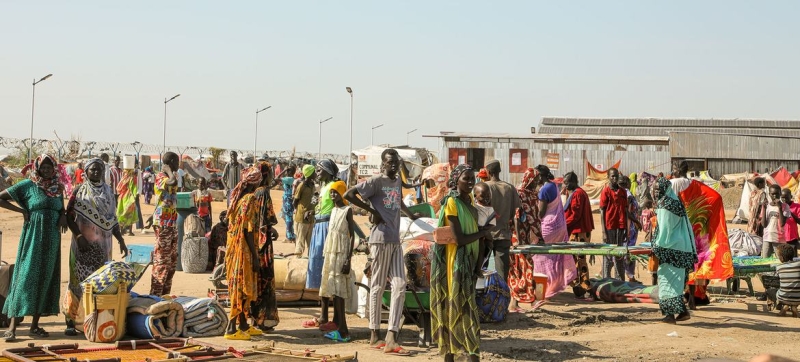
Sudanese refugees. Sudan: UN rights chief warns of escalating ethnic violence Peace and security
The conflict in Sudan is becoming even more dangerous for civilians, UN High Commissioner for Human Rights Volker Türk warned today, amid reports of brutal killings and ethnically motivated attacks in the country.
Türk recalled that the Sudanese Armed Forces and the Rapid Intervention Force (RIF) have been fighting for almost two years, with ethnically motivated attacks on civilians becoming increasingly common.
“Civilians in Sudan are already facing dire conditions, and there is evidence of war crimes and other grave violations,” the High Commissioner said.
Ethnically motivated killings
In the past week alone, the UN Human Rights Office (OHCHR) has recorded at least 21 deaths in two attacks in Gezira state. On 10 January, at least eight people were killed in Taiba camp, and at least 13 women and one man were abducted. Buildings were burned, property, livestock and crops were looted, and dozens of families were forced to flee their homes. The following day, on 11 January, at least 13 people, including two boys, were killed in Hamsa camp. The real number of attacks and casualties is likely much higher, OHCHR said.
The attacks were reportedly carried out by Sudan Shield forces led by Abu Akla Keikal, a former RSF commander who defected to the Sudanese Armed Forces. The victims were members of the historically marginalized Kanabi ethnic group, which is made up mainly of Nubians and other African tribes.
Türk said he had been assured by Sudanese authorities that the attacks, which took place in the context of the recapture of Wad Madani by the Sudanese Armed Forces, would be investigated and those responsible brought to justice. An investigation commission was also reportedly set up.
“Revenge attacks – shocking in their brutality – against entire communities based on real or perceived ethnicity are becoming increasingly common, as is hate speech and calls for violence. This must be stopped immediately,” Turk added.
Victims in Darfur
Serious concerns also remain about the situation in North Darfur, where ethnically motivated attacks by the RRF and allied Arab groups against African groups continue.
In addition, on 13 January, in the city of Omdurman, a drone attack allegedly launched by the Sudanese Armed Forces on a market in an RRF-controlled area reportedly killed some 120 civilians and injured more than 150.
“I once again call on the Chairman of the Transitional Sovereign Council and the Commander of the Rapid Reaction Force to cease hostilities,” Türk said.
Violations of International Law
The High Commissioner recalled the need to respect international humanitarian law and international human rights law. Thus, attacks on civilians are unacceptable.
He also warned that recruitment into groups and mobilization of fighters, mainly along ethnic lines, risked unleashing wider civil war and intercommunal violence.
“The Sudanese Armed Forces and the Rapid Reaction Force are accountable for the actions of groups and individuals who fight on their behalf,” Türk said. “Sudan must urgently take steps to ensure the protection of all civilians, including all possible measures to minimize harm to civilians during hostilities.”
The High Commissioner added that it was essential to conduct prompt, independent, impartial and transparent investigations into all reports of violations and abuses.
